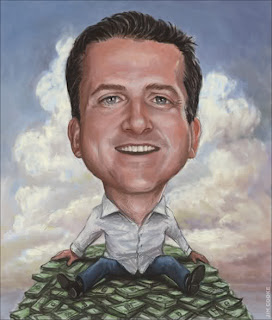 Feminist solidarity seems to be fracturing over the rape allegations against Julian Assange much the same way they did against Monica Lewinsky during the Clinton impeachment brouhaha. Writing in Salon.com, Kate Harding attempts to apply the brakes to the efforts to smear Assange's accusers:
Feminist solidarity seems to be fracturing over the rape allegations against Julian Assange much the same way they did against Monica Lewinsky during the Clinton impeachment brouhaha. Writing in Salon.com, Kate Harding attempts to apply the brakes to the efforts to smear Assange's accusers:
Quote:
As of today, even Naomi Wolf -- Naomi Effin' Wolf! -- has taken a public swipe at Assange's accusers, using her status as a "longtime feminist" to underscore the absurdity of "the alleged victims ... using feminist-inspired rhetoric and law to assuage what appears to be personal injured feelings."
Wow. Admittedly, I don't have as much experience being a feminist as Wolf has, but when I see a swarm of people with exactly zero direct access to the facts of a rape case loudly insisting that the accusation has no merit, I usually start to wonder about their credibility. And their sources.
Why would a prominent feminist be leading the charge to discredit a potential victim of sexual abuse? Like Bill Clinton, Julian Assange's political activities are cheered by the left but when the champions of these leftist causes are accused of abusing women, feminists are put in an uncomfortable spot. Do they stand with the powerful man who has the opportunity to use his power to advance their political agenda or do they stand with the women who accuse them of sexual crimes?
Quote:
Still, there is something to the point that feminists did not participate as fully in the public discourse on this issue as they might have. This reflects, in part, a self-conscious decision, made early on by organizations like NOW, the Black Leadership Forum, and many others, to treat the Clinton/Lewinsky/Starr matter as an inappropriate subject for public scrutiny given that the core concern was a private affair between two consenting adults. In other words, they concluded that as long as Clinton’s sexual dalliances fell short of the high legal standards set for showing sexual harassment or rape, the details of his social life should remain sheltered from public scrutiny. The general opinion seemed to be that real progress for women is best ensured by having a “pro-woman” president like Clinton in office, however disappointing his personal choices might be.
For reasons both principled and strategic, then, many feminists deemed it unwise to use the Clinton–Lewinsky affair as an occasion to push the feminist agenda forward on issues like workplace harassment and sex discrimination. But how wise was their retreat to the privacy defense of Clinton? More generally, what is lost when feminists abstain in principled silence from public discourse? Answers to these questions bears on the meaning of politics, the status of women, and the contribution feminism can make to people interested in transforming gender relations in this country.
Monica Lewinsky, unlike the women in the Julian Assange case, did not claim to be sexually assaulted or raped, but I find it hard to believe that if President Clinton had been a Republican feminist groups would not have led the charge down Pennsylvania Avenue and stormed the gates of the White House.
Returning to the Assange case, Harding concludes in her Salon.com article:
Quote:
Public evidence, as the Times noted, is scarce. So, it's heartening to see that in the absence of same, my fellow liberal bloggers are so eager to abandon any pretense of healthy skepticism and rush to discredit an alleged rape victim based on some tabloid articles and a feverish post by someone who is perhaps not the most trustworthy source. Well done, friends! What a fantastic show of research, critical thinking and, as always, respect for women.
Assange may or may not be guilty. There is plenty of reasons to be skeptical of the charges levied against him but do feminists really need to be leading the charge on his behalf against the women making the accusations? Feminists' default should always be to side with the women. Sexual assault and rape accusations are woefully underreported as is. It is likely that there is a recent victim of sexual assault or rape watching these events unfold and noting the fact that feminists like Wolf are trashing Assange's accusers. What conclusion should she reach when deciding whether or not to go to the police?
The defense of Assange would be best if it was left to others.












